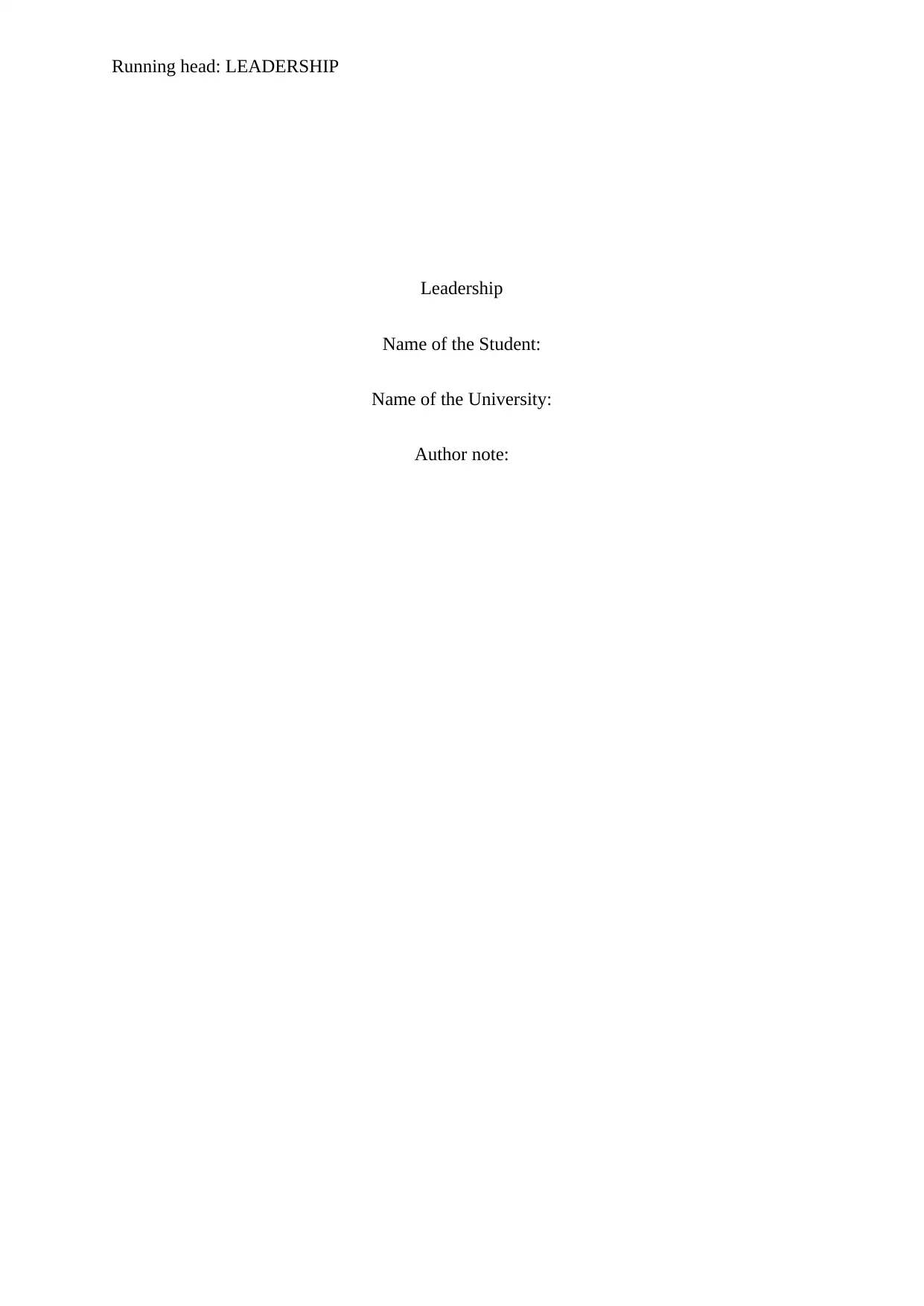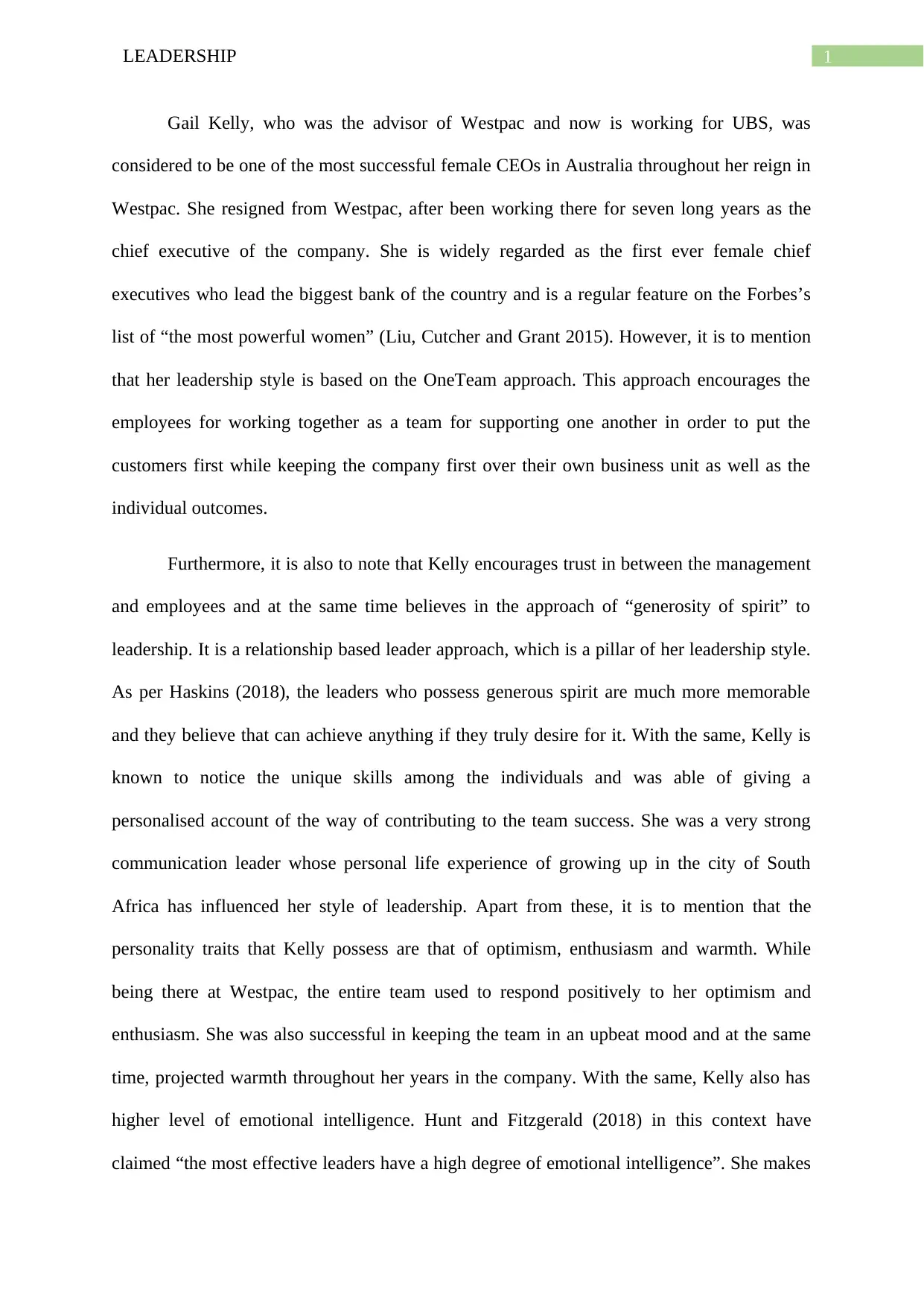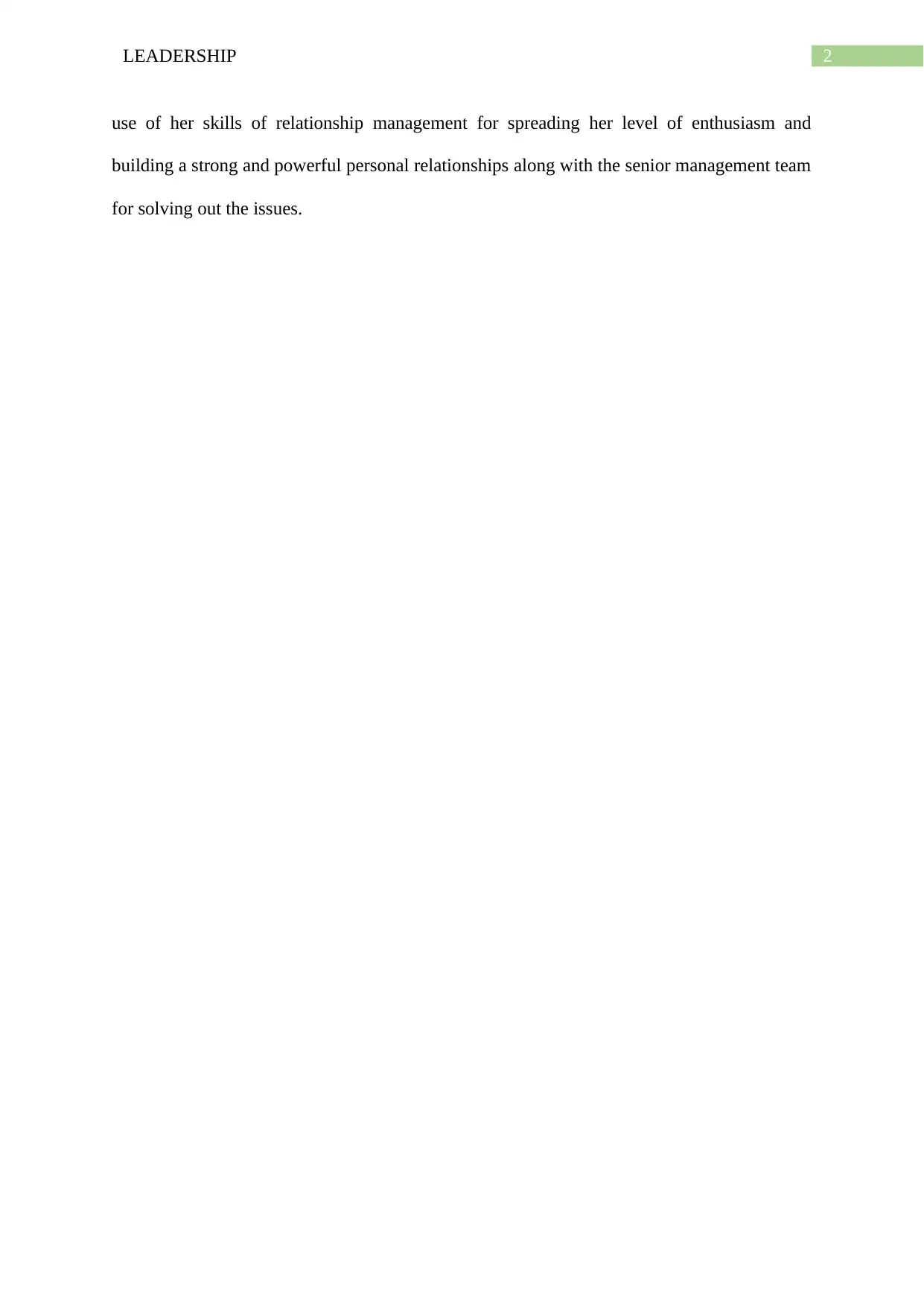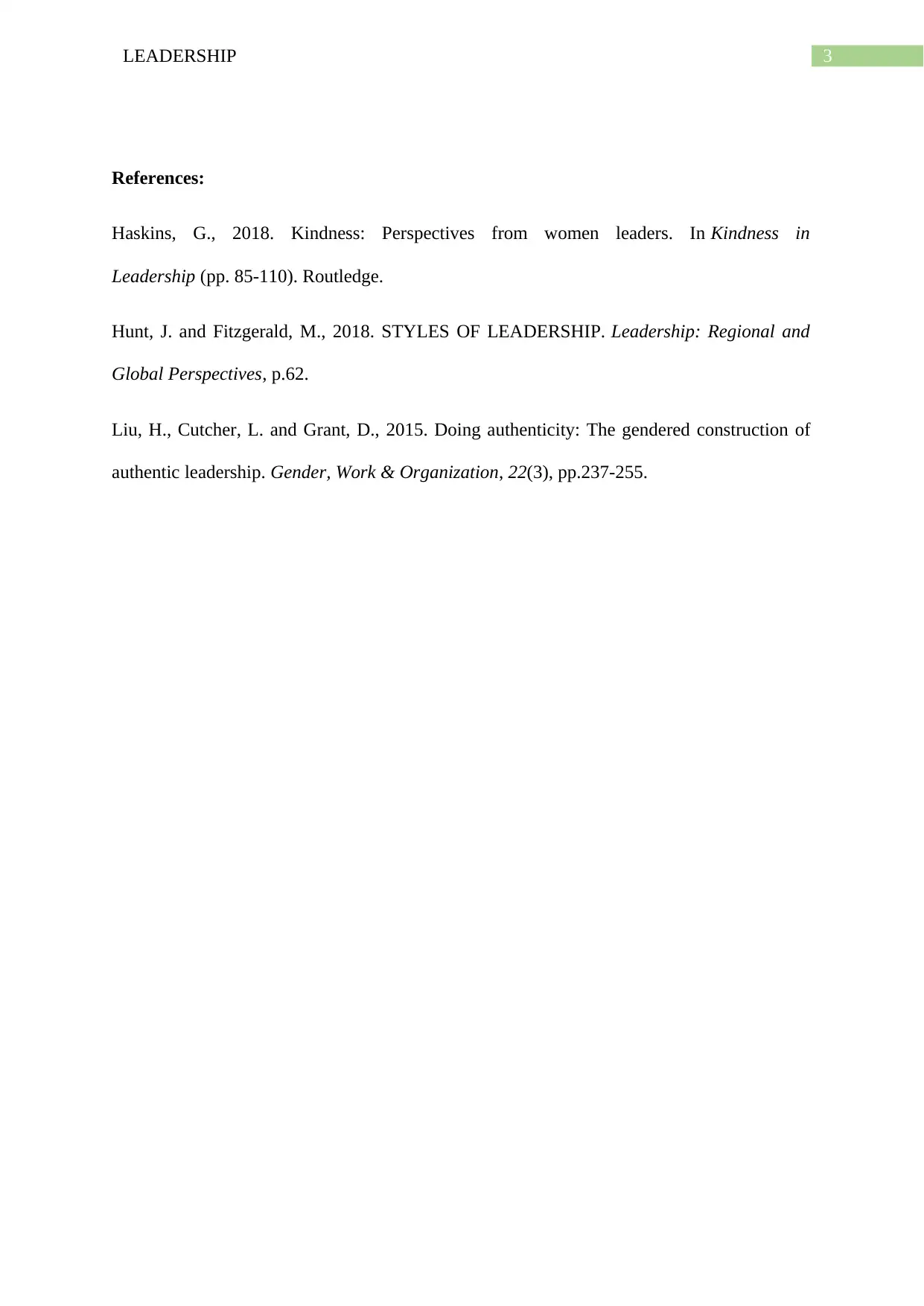Leadership in Business and Society: Gail Kelly's Leadership Analysis
VerifiedAdded on 2022/11/14
|4
|553
|136
Report
AI Summary
This report provides an analysis of Gail Kelly's leadership style, particularly during her time as CEO of Westpac. It examines her 'OneTeam' approach, which emphasized teamwork and customer focus, and her emphasis on building trust and fostering a 'generosity of spirit' within the organization. The report highlights Kelly's strong communication skills, optimism, enthusiasm, and high emotional intelligence, and how these traits contributed to her success. References to relevant leadership theories and models are included to contextualize her leadership approach. The report also discusses how her personal experiences influenced her leadership style. The report emphasizes that Kelly's leadership was a relationship-based approach, where she focused on the unique skills of individuals and built strong relationships with her team, particularly senior management, to solve issues effectively. This analysis provides a comprehensive overview of Kelly's leadership qualities and their impact on Westpac.
1 out of 4





![[object Object]](/_next/static/media/star-bottom.7253800d.svg)